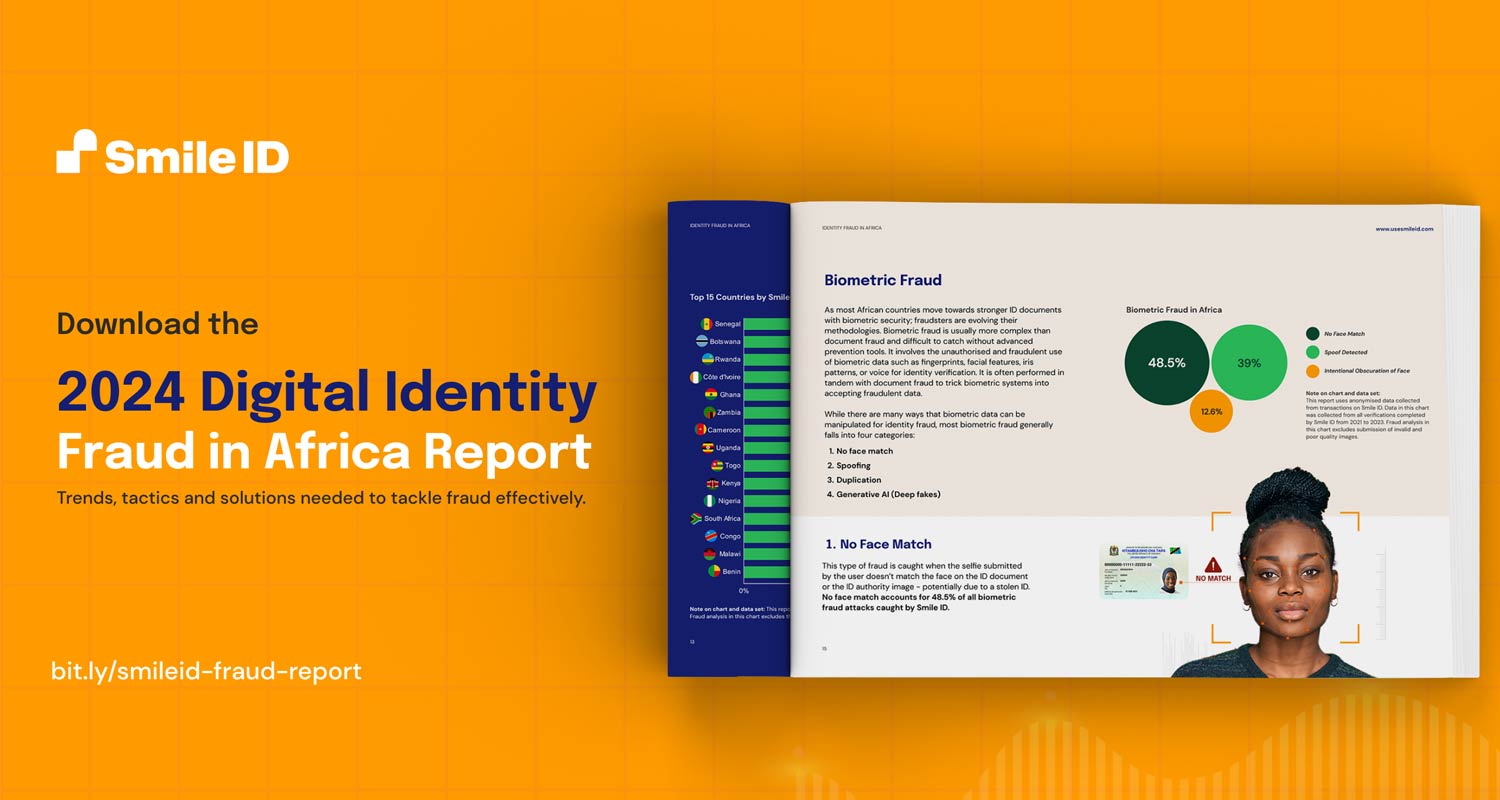 A recent report by Smile ID, a leader in identity verification technology, has identified South Africa’s green ID book as the most attacked ID document by fraudsters in Africa.
A recent report by Smile ID, a leader in identity verification technology, has identified South Africa’s green ID book as the most attacked ID document by fraudsters in Africa.
The comprehensive report, titled 2024 Digital Identity Fraud in Africa Report, analysed Smile ID’s unique dataset covering more than 100 million identity verification attempts by people using ID documents on the continent and found that 34% of attempts involving the green book were fraudulent, marking it as the document with the highest rate of attempted ID fraud. Other documents comprising the top three most vulnerable IDs include the Tanzanian and Kenyan national IDs.
National IDs, in general, were highlighted as a favourite target for fraudsters, according to the report. Data showed that 60% of the continent’s top 20 most vulnerable ID documents were national IDs. While the high rate of fraud with national ID documents is typically put down to their popularity, which makes them easily accessible to fraudsters, the green book brings into focus peculiar issues with old ID documents that have weaker security measures.
Download the report
Despite being replaced by the newer and improved smart ID card in 2013, the green book ID has yet to be completely phased out in South Africa. It is still held by many South Africans and is a legally accepted document. Before its replacement, the green book was already notorious for its susceptibility to fraud — one of the reasons cited as a need for its replacement. Incidentally, the new South Africa smart ID card saw five times less fraud than the green book, according to data from Smile ID, indicating it was more secure.
The Fraud in Africa report from Smile ID explores the prevalent methods fraudsters across Africa use, their behaviours, and regional and business trends. It also provides crucial insight into how businesses can best combat identity fraud across the continent.
Rapid digitisation across Africa has also correlated with rising incidents of all kinds of fraud, including digital identity fraud. According to the Smile ID report, which spans data from the last four years, the rate of digital identity fraud on the continent has risen yearly since 2019. The average biometric and document fraud rate peaked at 17% in the fourth quarter of 2023, indicating that fraud is rising and fraudsters are evolving their methods.
 With more incidents of hacks being reported year on year, businesses must strengthen their anti-fraud protocols. Ongoing risk monitoring and multi-authentication during high-value events will be vital to helping companies fight fraud, according to the report, which emphasised the implementation of biometric authentication at critical junctures in the customer journey.
With more incidents of hacks being reported year on year, businesses must strengthen their anti-fraud protocols. Ongoing risk monitoring and multi-authentication during high-value events will be vital to helping companies fight fraud, according to the report, which emphasised the implementation of biometric authentication at critical junctures in the customer journey.
“We see more fraud move away from abusing referrals and new account bonuses to account takeover and fraud on existing accounts. As such, businesses must perform ongoing biometric authentication on user accounts to ensure they are being operated by their rightful owners, especially during high-volume transactions, logins from new devices, and other high-risk events,” said Mark Straub, CEO of Smile ID.
Other topics highlighted in the report include:
- The prevalence of fraud with national IDs;
- Regional fraud trends;
- Industry-specific insights;
- Building a comprehensive anti-fraud system;
- The growing threat of artificial intelligence to identity verification; and
- Future developments in fraud prevention.
The Identity Fraud in Africa Report is available on Smile ID’s website. Download it here.
- This promoted content was paid for by the party concerned




